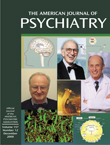James Joyce
He said he had all the words, it was simply a question of putting them in the right order. He would pore over each word not only for its rhythm, its sense, its aptness, its beauty, its vulgarity, its myriad associativeness, but sometimes for its prophetic core. (p. 100)Joyce repeating the word over and over again, to savour their sounds which had replaced sight and touch. (p. 165)
He was laying siege to literature.…Art was to move on to reveal ideas and formless spiritual essences, the old language was to be put to sleep. Words would be broken down to extract the substance from them.…Words spliced, added to and compounded to have a denser meaning. The boudoir for instance, where Anna Livia with the help of her seven rainbow girls braids her hair, was converted to boudelaire, a meshing of bou for mud and a deference to Baudelaire. (p. 137)
Do writers have to be such monsters in order to create? I believe that they do. It is a paradox that while wrestling with language to capture the human condition they become more callous, and cut off from the very human traits which they so glisteningly depict. There can be no outer responsibility, no interruptions, only the ongoing inner drone, rhythmic, insistent, struggling to make a living moment of both beauty and austerity. (p. 130)
Information & Authors
Information
Published In
History
Authors
Metrics & Citations
Metrics
Citations
Export Citations
If you have the appropriate software installed, you can download article citation data to the citation manager of your choice. Simply select your manager software from the list below and click Download.
For more information or tips please see 'Downloading to a citation manager' in the Help menu.
View Options
View options
PDF/EPUB
View PDF/EPUBGet Access
Login options
Already a subscriber? Access your subscription through your login credentials or your institution for full access to this article.
Personal login Institutional Login Open Athens loginNot a subscriber?
PsychiatryOnline subscription options offer access to the DSM-5-TR® library, books, journals, CME, and patient resources. This all-in-one virtual library provides psychiatrists and mental health professionals with key resources for diagnosis, treatment, research, and professional development.
Need more help? PsychiatryOnline Customer Service may be reached by emailing [email protected] or by calling 800-368-5777 (in the U.S.) or 703-907-7322 (outside the U.S.).

